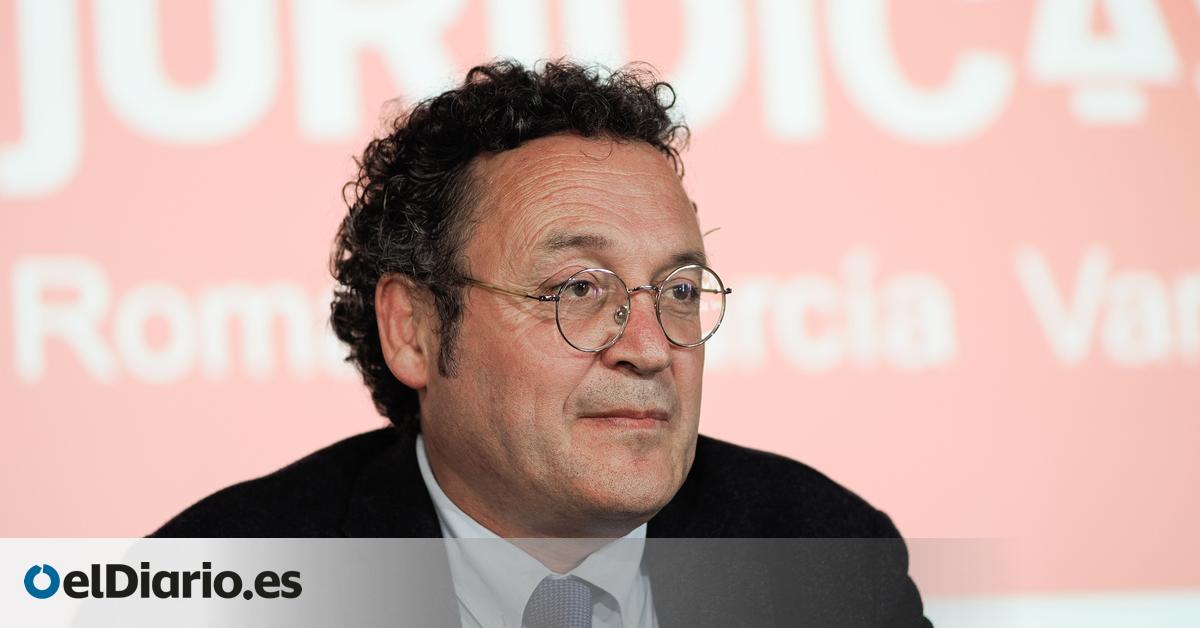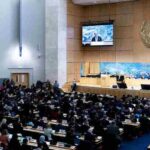
The members of the Board of Court Prosecutors, one of the bodies that make up the leadership of the prosecutor’s career, have minimally supported the criterion of the State Attorney General to request that the amnesty be applied to all crimes, including embezzlement. that affects Carles Puigdemont or Oriol Junqueras; as well as lifting the arrest warrant against the former president.
37 prosecutors participated in the meeting, of which 19 have supported Álvaro García Ortiz’s thesis – including their vote – and 17 have agreed with the prosecutors of the process, who defend that the diversion of public funds to carry out the The 1-O referendum must remain outside the perimeter of the law and the precautionary measures must not be lifted either. One of the attendees has abstained.
The meeting, which lasted more than five hours, was held at the request of these four prosecutors who prosecuted the procés trial: Javier Zaragoza, Consuelo Madrigal, Fidel Cadena and Jaime Moreno. It was now up to them to rule on the application of the amnesty both to the pro-independence leaders who were already convicted – and partially pardoned – and to those who were not prosecuted for having left for Belgium after the 1-O referendum. But they decided to raise the conflict to this body, of which the members of the highest category of the race are part, considering “inadmissible” and “contrary to the laws” the order received from the attorney general, which ordered them to rule in favor of apply the amnesty to all crimes.
However, the vote was in no way binding on García Ortiz, who has already announced in his final intervention before the Board that he will maintain his criteria. He has also revealed that the lieutenant prosecutor of the Supreme Court, Ángeles Sánchez Conde, and one of the chief criminal prosecutors, Joaquín Sánchez Covisa, will be in charge of preparing the report that will be sent to the Supreme Court, given that the four prosecutors of the process have already They have made it clear that they will not sign the decree with a thesis that they do not share. In any case, the last word on the application of the amnesty will be the judges of the High Court.
The debate has been dominated by the crime of embezzlement for which the Supreme Court convicted four of the 12 pro-independence leaders whom it prosecuted – Oriol Junqueras, Jordi Turull, Raül Romeva and Dolors Bassa – and which also attributes to Puigdemont and the former ministers Toni Comín. and Lluís Puig. The application or not of the amnesty to this type of crime has emerged as one of the great obstacles that the law must face to take effect. And it is also very relevant because its exclusion from the amnesty would mean that the arrest warrants that still weigh on those investigated who are outside Spain, like Puigdemont, could be maintained.
Embezzlement, the key
The vote has been preceded by an intense debate in which the Supreme Court prosecutors have defended that the diversion of public funds to carry out the 1-O referendum should remain outside the perimeter of the law. On the other hand, the attorney general has been in favor of amnesty for all crimes related to this consultation and maintains that the interpretation of the four prosecutors goes against the will of the legislator and even calls into question previous positions of the High Court.
The meeting began with the intervention of these four prosecutors, who explained the reason for their rejection of the order given by the attorney general. Thus, they have defended that the independence leaders did enjoy a “patrimonial benefit” because, “for profit,” they appropriated public money and used it to pay those they themselves had hired to carry out the process.
In their draft report, they already stressed that the amnesty law “is applicable” to the general secretary, Marta Rovira, who remains in Switzerland, or the former councilor Clara Ponsatí, since they are being prosecuted exclusively for the crime of disobedience. But they maintained that “it is not applicable” to the defendants Puigdemont, Toni Comín and Lluís Puig, nor to the convicted Junqueras, Jordi Turull, Raül Romeva and Dolors Bassa for the crime of embezzlement of public funds.
“profit motive”
After the interventions of Zaragoza, Madrigal, Cadena and Moreno, a debate was opened in which the Attorney General gave the floor to all the members of the Board who had requested to express their point of view. Once his interventions were concluded, García Ortiz took the floor, maintaining in his report that the law clearly alludes to the fact that the “limited” diversion of funds to the referendum is included in the scope of application of the norm and must be amnestied.
García Ortiz understands that the four prosecutors equate the “profit motive” required by the crime of embezzlement with “personal enrichment of a patrimonial nature” that the law considers non-amnestiable. And he defends that the financial damage to the Administration is not comparable to “personal enrichment of a financial nature.” Likewise, the attorney general considers that the events did not directly affect the financial interests of the European Union.
Among the supports for the prosecutors of the process has been that of María José Segarra, who was the first attorney general appointed by the Government of Pedro Sánchez and is a member of the Progressive Union of Prosecutors (UPF), an association to which the current one was affiliated. attorney general until appointed. Also that of the chief anti-corruption prosecutor Alejandro Luzón.
On the other hand, former Attorney General Dolores Delgado has taken a position in favor of the thesis that embezzlement should be amnestied; the chief prosecutor of the National Court, Jesús Alonso, who is a member of the conservative Association of Prosecutors; or the chief prosecutor of the Constitutional Court, Pedro Crespo. Antonio Vercher, prosecutor of the Environmental Chamber, has abstained.
Source: www.eldiario.es

